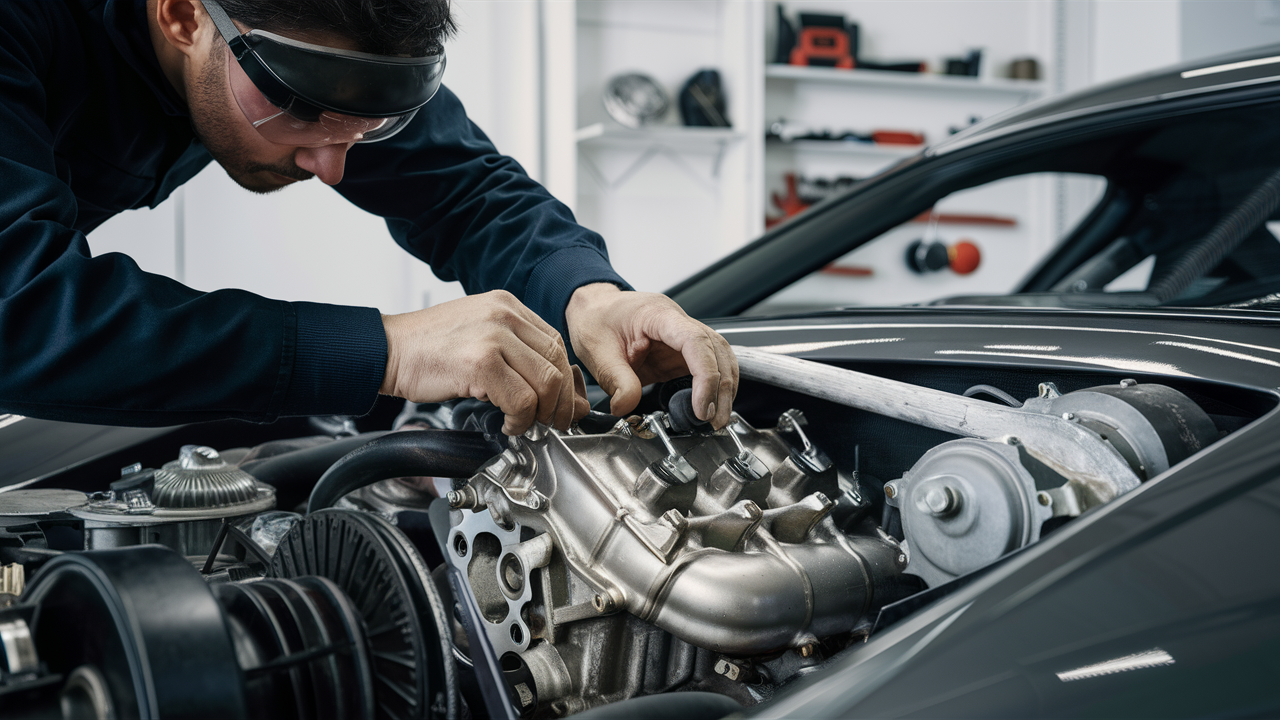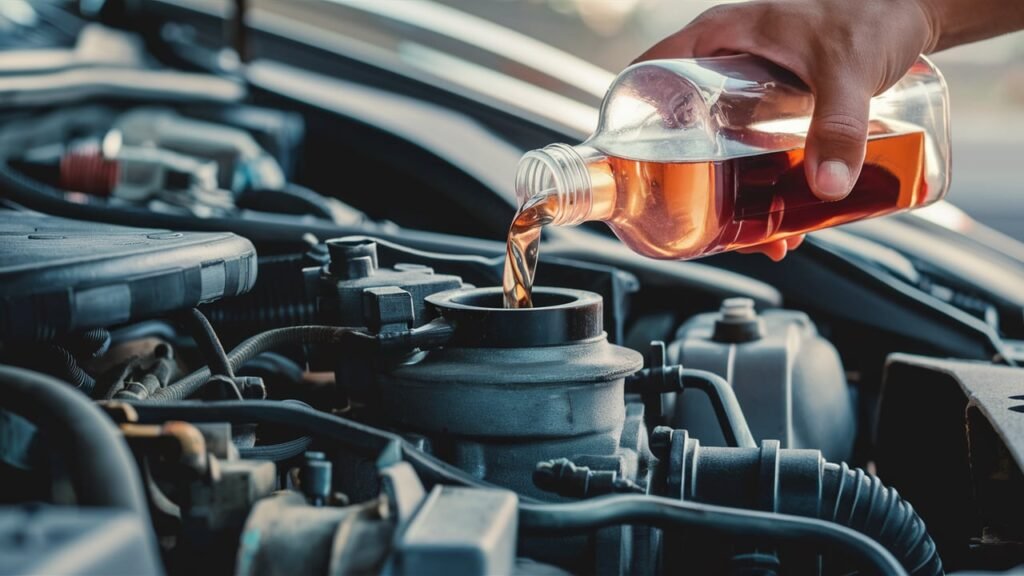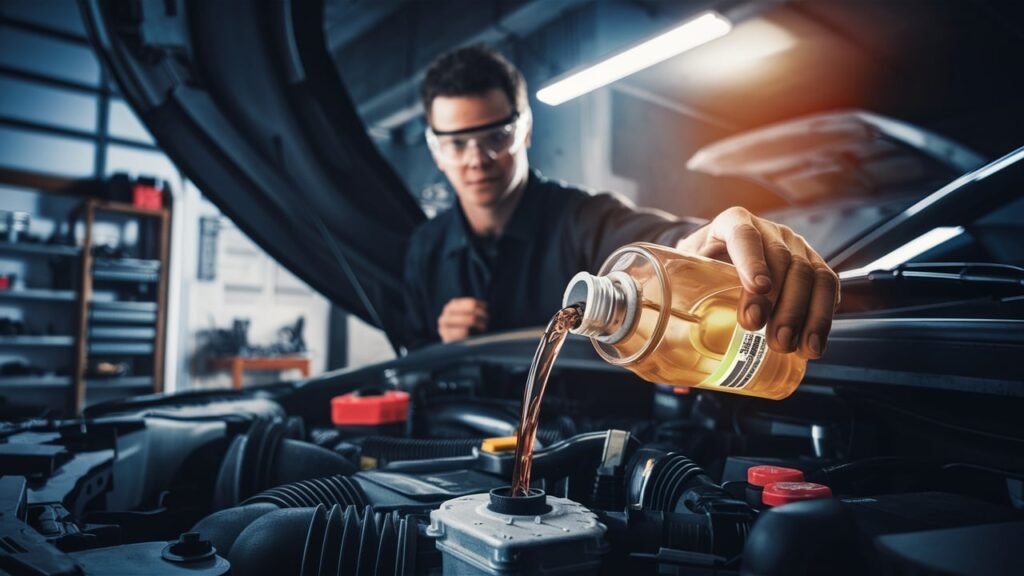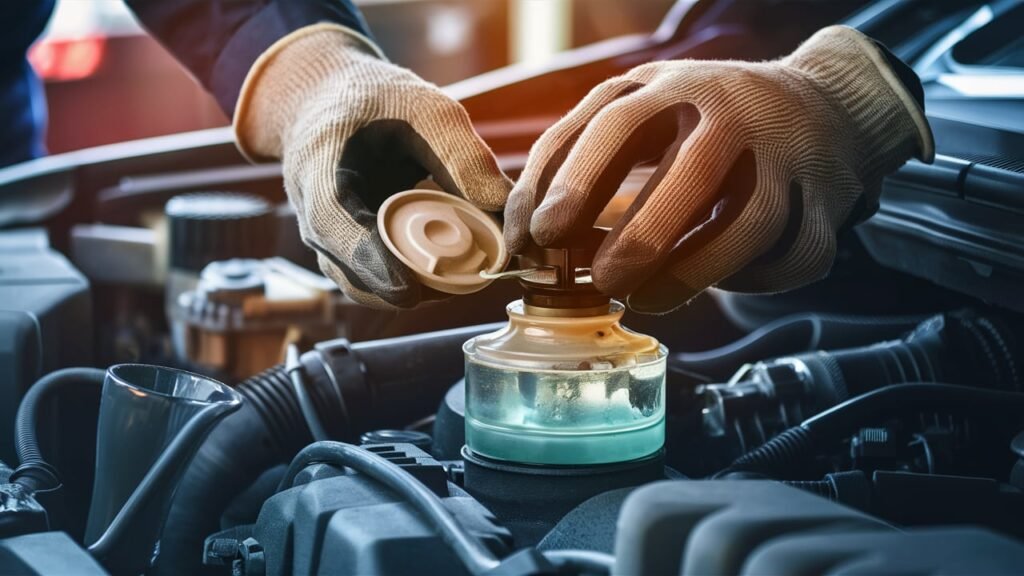
Understanding Car Engine Tuning: A Comprehensive Guide
Car engine tuning is a complex process that involves modifying various components of a vehicle’s engine to optimize its performance. The goal of engine tuning is to improve the engine’s power output, efficiency, and overall driving experience. Here is a comprehensive guide to understanding car engine tuning:
What is Engine Tuning?
Engine tuning is the process of modifying a vehicle’s engine to enhance its performance, efficiency, and overall driving experience. It involves adjusting various components, including the engine’s mechanical and electronic parts, to achieve optimal performance levels.
Types of Engine Tuning Modifications.
- ECU Remapping: Modifying the engine control unit (ECU) helps improve power, performance, and fuel efficiency by adjusting engine parameters such as air/fuel ratio, ignition timing, and throttle response
. Chip Tuning: Replacing the stock chip with an aftermarket chip can also improve engine performance by adjusting parameters like air/fuel ratio and ignition timing. Air Intake Upgrade: Upgrading the air intake system allows more airflow into the engine, resulting in improved horsepower and acceleration.
Turbocharging/Supercharging: Adding a turbocharger or supercharger can significantly increase horsepower and torque output, but requires significant mechanical knowledge and expertise. Expanding Cylinder Capacity: Increasing the size of the engine’s cylinders allows more fuel and air to be burned during each combustion cycle, resulting in improved performance.
Benefits of Engine Tuning.
- Improved Performance: Engine tuning can increase horsepower, torque, and acceleration, making the driving experience more enjoyable and engaging. Enhanced Fuel Efficiency: Tuning can also improve fuel economy, which can lead to cost savings and reduced environmental impact. Customization: Engine tuning allows car owners to personalize their vehicles to suit their driving preferences and style.
Considerations and Risks.
- Legal and Safety Regulations: Some modifications can render a vehicle illegal for road use or unsafe. It is crucial to ensure that all enhancements comply with the law and do not compromise the car’s safety
. Warranty: Permanent modifications and intense tuning processes may void the vehicle’s warranty. It is essential to research and consult with the manufacturer before making significant changes. Expertise and Tools: Engine tuning requires a certain level of expertise and specialized tools to ensure modifications are done safely and effectively. DIY tuning can be risky and may not achieve the desired results.
Car engine tuning is a complex process that involves modifying various components of a vehicle’s engine to optimize its performance. By understanding the different types of modifications and their benefits, car owners can make informed decisions about how to enhance their vehicle’s performance and efficiency. However, it is crucial to consider legal and safety regulations, warranty implications, and the need for expertise and specialized tools to ensure successful and safe tuning.
Car enthusiasts, mechanics, engineers, and vehicle owners alike are no strangers to the concept of car engine tuning—a meticulous process designed to elevate a vehicle’s performance capabilities. At its core, car engine tuning involves fine-tuning various components within an engine system to optimize power output and efficiency.
This comprehensive guide delves into the intricacies of car engine tuning, shedding light on its significance in achieving peak performance from your vehicle.

Understanding car engine tuning goes beyond a mere mechanical adjustment—it is a sophisticated art form that empowers individuals to unlock the hidden potential of their vehicles. By strategically modifying elements such as fuel delivery, ignition timing, and air intake parameters, car engine tuning plays a pivotal role in unleashing enhanced horsepower, torque, and overall drivability.
The importance of this process cannot be understated when aiming to extract the utmost performance from your beloved automobile. Thus, embarking on the journey of comprehending car engine tuning not only offers a deeper understanding of vehicular mechanics but also paves the way for unparalleled driving experiences that transcend ordinary bounds.
Understanding Car Engine Tuning.
Car engine tuning is the process of adjusting or modifying a vehicle’s engine to improve its performance, efficiency, or overall driving experience. This involves making specific alterations to the engine components to optimize parameters like fuel consumption, horsepower, torque, and emissions.
By fine-tuning various elements within the engine system, enthusiasts and mechanics can tailor their vehicle’s performance characteristics to suit their preferences or operational requirements.
The benefits of car engine tuning are manifold. Firstly, tuning can enhance a vehicle’s power output by maximizing combustion efficiency and airflow through the engine. This results in improved acceleration, top speed capabilities, and overall driving dynamics.
Secondly, optimized tuning can lead to better fuel economy by ensuring that the engine operates at its peak efficiency levels. Additionally, engine tuning allows for customization based on individual needs – whether it be for track racing where higher power outputs are desired or for daily commuting where fuel savings are crucial.
Several methods are employed in car engine tuning to achieve the desired modifications. Examples include adjusting air-fuel ratios, upgrading exhaust systems for better flow and reduced backpressure, installing aftermarket intake systems to increase air intake volume, and modifying ignition timing for improved combustion control.
Each method aims to maximize the efficiency and performance of the engine within its design limitations while taking into account factors like reliability and emissions compliance.In essence, understanding car engine tuning involves recognizing the interconnectedness of various components within an engine system and how adjustments made to one part can affect others.
By comprehending how these changes influence performance metrics like horsepower and torque output or fuel consumption rates, enthusiasts and professionals alike can unlock new levels of performance and efficiency from their vehicles through strategic tuning practices.
Key Components in Car Engine Tuning.
In the realm of car engine tuning, several key components play vital roles in optimizing a vehicle’s performance. Understanding these components and how they can be tuned is crucial for achieving desired improvements.
One essential component is the spark plugs, which are responsible for igniting the air-fuel mixture in the engine cylinders. By adjusting the spark plug gap or using specialty spark plugs designed for higher performance, enthusiasts can enhance combustion efficiency and power output.
Another critical component that affects engine performance is the air intake system. The amount of air entering the engine determines how effectively fuel can be burned to produce power.
Modifying the air filter, intake manifold, or even installing a cold-air intake system can increase airflow, leading to improved combustion and horsepower gains. Adjusting these components not only enhances power but also contributes to better fuel economy when done correctly.

Fuel injectors are equally important elements when it comes to car engine tuning. These components deliver fuel into the combustion chamber at precise intervals and pressures.
Upgrading to high-flow fuel injectors or adjusting the injector pulse width through tuning can optimize fuel delivery for specific performance needs. Properly calibrated fuel injectors ensure efficient combustion and prevent issues like running too rich or lean, crucial for both power output and engine longevity.
By understanding and fine-tuning these key components such as spark plugs, air intake systems, and fuel injectors, auto enthusiasts can unlock hidden potential in their vehicles. Each adjustment works together synergistically to improve overall engine efficiency and output while maintaining reliability when executed with precision and expertise.
Experimenting with different combinations within these components can lead to personalized enhancements tailored to individual driving preferences and goals, showcasing the intricate art of car engine tuning at its finest.
Common Techniques Used in Car Engine Tuning.
When it comes to tuning a car’s engine, two common techniques frequently employed are chip tuning and ECU remapping. Chip tuning involves replacing the existing software on the engine control unit (ECU) with a custom-programmed chip to enhance performance.
On the other hand, ECU remapping involves modifying the software parameters within the ECU without physically changing any hardware components. These techniques are popular options for those looking to unlock more power or improve fuel efficiency in their vehicles.
Both chip tuning and ECU remapping have their own set of pros and cons. Chip tuning is often praised for its immediate boost in horsepower and torque figures, offering noticeable performance gains. However, this method may void warranties and can potentially cause issues if not done correctly.
Conversely, ECU remapping is considered a safer approach as it keeps original hardware intact while optimizing engine performance. Yet, the customization process can be more time-consuming and may require expert knowledge.
When choosing a specific tuning method for your car’s engine, several considerations should be taken into account. Factors such as your vehicle model, driving habits, intended use (e.g., track racing or daily commuting), and budget constraints all play a crucial role in deciding between chip tuning and ECU remapping.
It is essential to research reputable tuners or companies that offer these services and compare their expertise, customer reviews, and pricing structures before making a decision.
In practical terms, imagine you own a turbocharged sports sedan and want to optimize its performance further. You might lean towards chip tuning for instant power gains but will need to factor in potential risks associated with hardware modifications.
Alternatively, if you prefer a less invasive approach that maintains factory components while still improving horsepower and torque delivery gradually over time, ECU remapping could be the suitable choice based on your requirements and preferences.
Ultimately, understanding the intricacies of each technique will guide you towards selecting the most appropriate method tailored to your specific needs and goals when fine-tuning your car’s engine performance.
Factors to Consider Before Tuning Your Car’s Engine.
When contemplating tuning the engine of your car, it is crucial to conduct a thorough pre-tuning inspection. This checklist should include examining the engine for any existing issues, ensuring components are functioning correctly, and verifying that all parts are compatible with the chosen tuning method.
For instance, if you plan on increasing horsepower through turbocharging, it is vital to confirm that the engine and accompanying systems can handle the additional stress without compromising reliability.
Understanding the potential impacts on your vehicle’s warranty due to engine tuning is essential. Modifying certain components or altering performance parameters could void manufacturer warranties.

It’s advisable to review your vehicle’s warranty documentation or consult with experts before proceeding with any tuning processes that may jeopardize these agreements. By being aware of the warranty implications beforehand, you can make informed decisions about how far you want to push your car’s performance capabilities while considering warranty coverage.
Identifying compatibility issues that may arise during the tuning process is crucial for ensuring a successful engine tune-up. Components within an engine are designed to work harmoniously together, and modifications can introduce potential conflicts in operation.
For example, changing fuel injectors without adjusting the air intake system may lead to inefficient combustion ratios and possible engine damage. Understanding how different components interact within your specific vehicle model will help anticipate compatibility challenges and address them proactively during the tuning process for optimal performance outcomes.
DIY vs. Professional Car Tuning Services.
When considering engine tuning, whether to opt for the do-it-yourself (DIY) route or to seek professional services is a significant decision. DIY tuning can offer enthusiasts a hands-on experience and potentially cost-saving benefits.
By delving into their car’s engine themselves, individuals can gain a deeper understanding of the tuning process and develop new skills. This approach allows for customization based on personal preferences, offering a sense of accomplishment once improvements are made.
However, DIY tuning requires a substantial amount of time, research, and the investment in tools and equipment. Mistakes made during the process can lead to costly repairs or even damage if not executed correctly.

On the other hand, seeking professional car tuning services provides expertise and efficiency that amateurs may lack. Professional tuners possess specialized knowledge and access to advanced tools and technologies, ensuring precise adjustments tailored to the vehicle’s specific requirements.
They can offer insights into enhancing performance while maintaining reliability and compliance with regulations. It is advisable to opt for professional help when dealing with complex tuning methods or if unsure about making critical adjustments that could impact the engine’s longevity. Professionals also provide warranties on their work, offering customers peace of mind regarding the quality of service provided.
Cost considerations play a crucial role in deciding between DIY tuning and professional services. While DIY might seem more budget-friendly at first glance due to labor savings, expenses related to acquiring equipment, potential mistakes that require rectification by professionals, and lost time could outweigh initial savings.
In contrast, utilizing professional services involves an upfront cost but often leads to more accurate results without the risk of errors that could incur additional charges down the line. It is essential for vehicle owners to weigh these financial aspects alongside their skill level and commitment before embarking on an engine tuning journey.
Conclusion: Ensuring Successful Engine Tune-Up.
In conclusion, mastering the art of car engine tuning is crucial for enthusiasts, mechanics, engineers, and vehicle owners seeking to optimize performance and efficiency. With a clear understanding of what engine tuning involves—including adjustments to key components like spark plugs, air intake systems, and fuel injectors—individuals can embark on this process knowledgeably.
By exploring various techniques such as chip tuning and ECU remapping, stakeholders can make informed decisions based on their specific needs and preferences.
When considering whether to undertake DIY tuning or enlist professional services, it is essential to weigh the benefits and drawbacks carefully. While DIY projects offer customization and cost-saving advantages, amateurs should be cautious of the risks involved in altering critical engine functions.
Professionals bring expertise and precision to the table, particularly useful when intricate adjustments are required. As with any decision involving vehicle maintenance, thoroughly evaluating compatibility issues, warranty implications, and cost considerations is essential before proceeding with an engine tune-up.
By adhering to best practices outlined in this comprehensive guide—from pre-tuning inspections to selecting suitable tuning methods—enthusiasts can navigate the realm of car engine tuning successfully.
Whether aiming for enhanced power output or improved fuel efficiency, responsible tuning practices ensure that vehicles operate at their optimum potential while promoting longevity. With a commitment to meticulous planning and a dedication to continuous learning in this dynamic field, achieving a successful engine tune-up becomes an attainable goal for all automotive enthusiasts.




